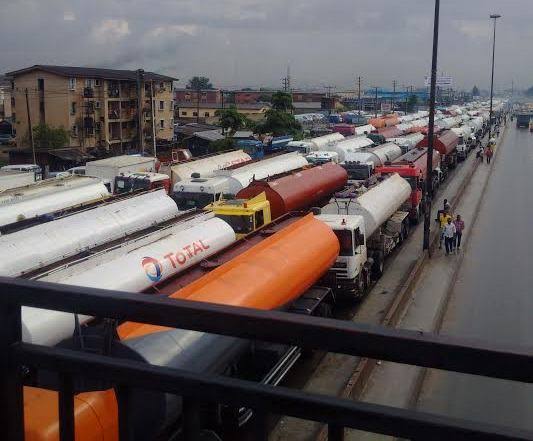The National Association of Road Transport Owners (NARTO) has expressed concern over the Federal Government’s plan to prohibit the use of 60,000-litre capacity fuel tankers, warning that such a move could lead to the loss of N300 billion in investments.
Speaking in an interview in Abuja on Sunday, NARTO President, Yusuf Othman, emphasized that the proposed ban would have severe financial implications for tanker owners, many of whom financed their trucks through commercial banks or personal investments.
The Nigerian Midstream and Downstream Petroleum Regulatory Authority (NMDPRA) is considering capping petroleum tanker capacity at 45,000 litres to curb the frequent accidents, explosions, and fatalities linked to larger fuel tankers. Other safety measures being implemented include installing anti-spill safety valves, discouraging fuel scooping at accident scenes, and regular stakeholder engagements.
However, Othman argued that the accidents were not caused by the tankers’ size but rather by poor road conditions, vehicle maintenance issues, and driver behavior.
“There are about 2,000 trucks, each worth approximately N150 million, amounting to a total investment of N300 billion. It would be unfair for such significant investments to go to waste. We are looking for a win-win solution,” he stated.
While acknowledging the tragic loss of lives in recent fuel tanker accidents, Othman stressed that reducing capacity to 45,000 litres would affect the balance of the trucks. He suggested that a reduction to 50,000 litres might be more feasible.
“All the 60,000-litre tankers are relatively new, which is why they can carry that volume. Older trucks, which couldn’t handle such loads, have already been phased out as they are no longer economically viable,” he explained.
He urged the government to consider a buy-back policy for the affected trucks if it insists on phasing them out, ensuring that investors do not suffer heavy losses.
NARTO also reaffirmed its commitment to safety, stating that it ensures all tanker drivers are licensed, physically and mentally fit, and undergo regular training. Additionally, trucks are inspected twice a year to maintain roadworthiness.
Othman highlighted that fuel scooping at accident scenes remains a major cause of fatalities, emphasizing the need for public awareness campaigns to prevent further tragedies.
“We support the government’s efforts and also want the government to support our private investments.
“We are still talking with the Federal Government, and I believe we will resolve it amicably” he concluded.


